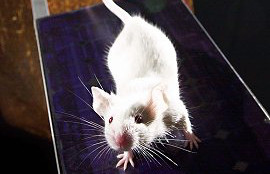Astronauts who spend long periods of time in space are known to suffer from muscle atrophy and bone loss, but little research has described the effects of microgravity on the skin. A study published in Nature yesterday (May 27) provides a first look—in mice—at how the largest organ of the body responds to long-term space travel. Researchers in Belgium and Italy analyzed skin samples from mice that were sent to the International Space Station (ISS) for three months as part of the Mice Drawer System Tissue Sharing program—the longest rodent space mission to date.
“Ninety-one days for a mouse corresponds to about seven years for a human,” David Green, who studies human physiology at King’s College London and was not involved in the study, told ...





















